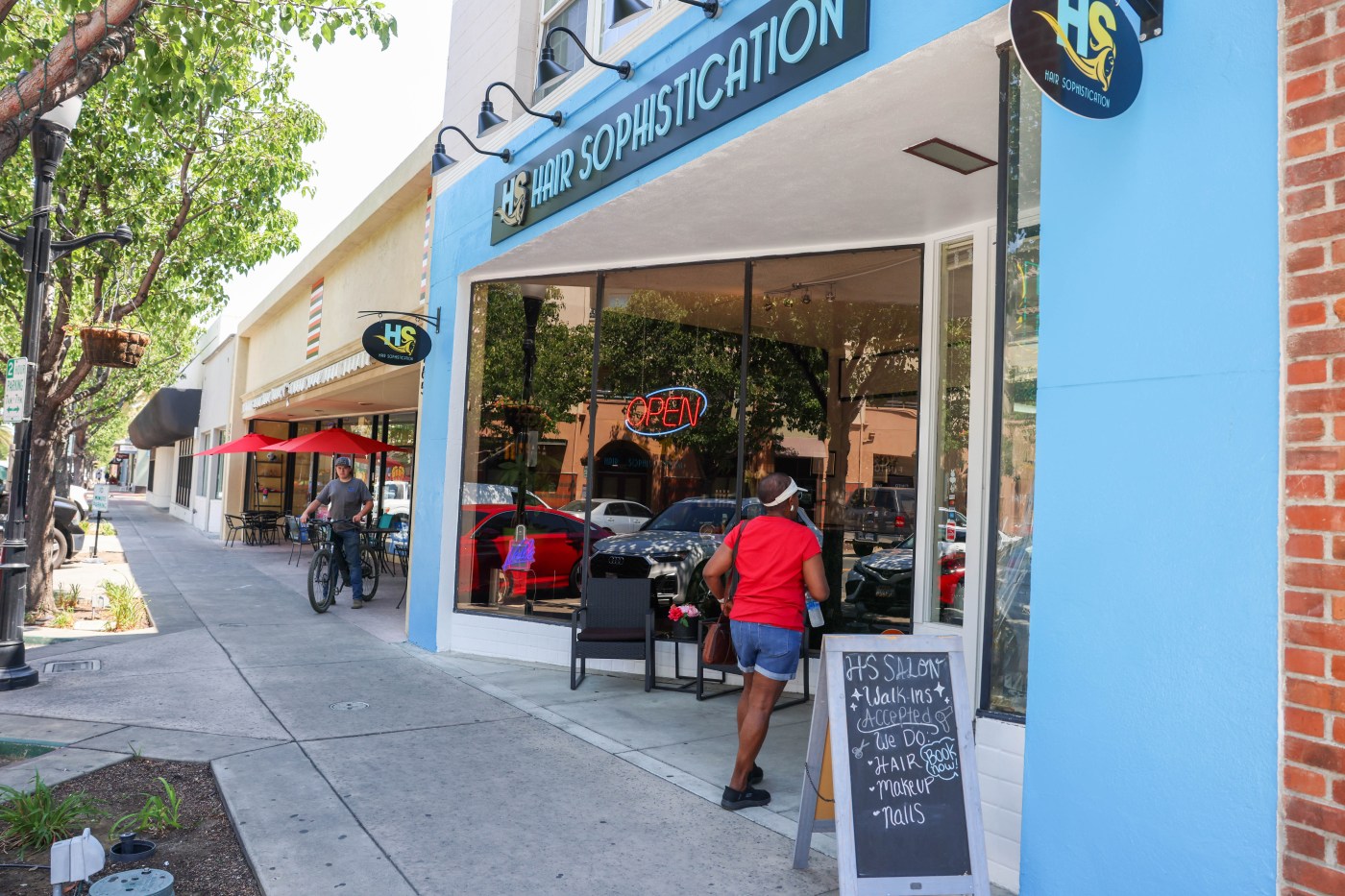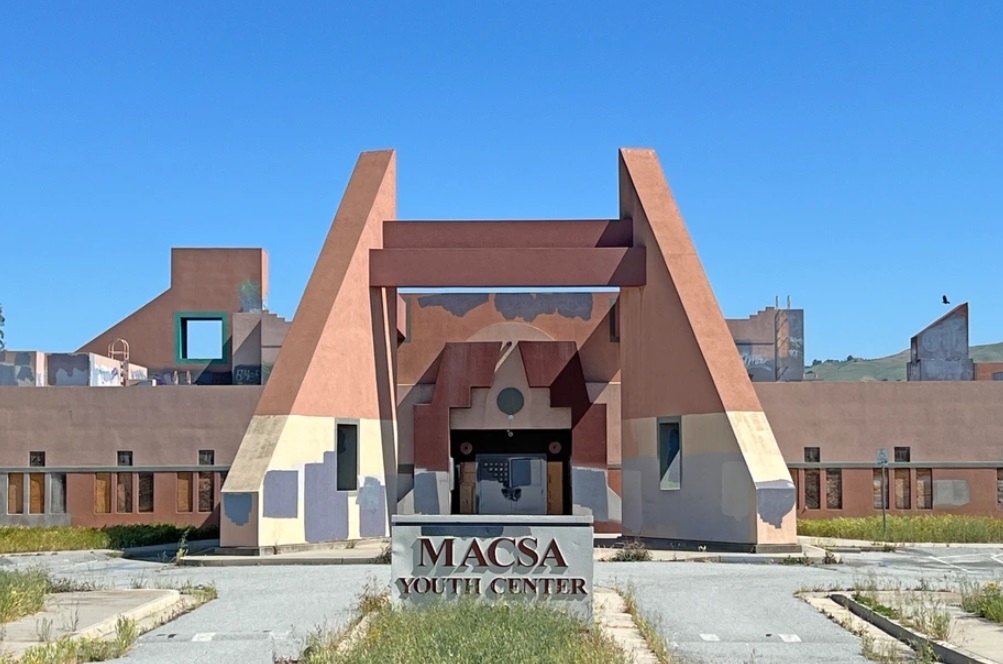PITTSBURG – Pittsburg is stepping up efforts to transform its downtown into a lively gathering place through a blend of initiatives that include updated zoning efforts, facade upgrades and public art.
Related Articles
Opinion: California’s small businesses need protection — not legal shakedowns
Loard’s Ice Cream, founded in 1950, returns to Oakland
More small businesses starting to go cashless
Floral design career began with San Jose man’s coffee shop encounter
Hidden beer garden and smashburger joint opens quietly in Belmont
Pittsburg Community and Economic Development Director Jordan Davis said for years the city has envisioned downtown as a hub for dining and retail. However, the shift in traditional shopping patterns has spurred officials to look for other ways to diversify the area.
The city is preparing to update its zoning development code this year by expanding the types of businesses allowed downtown, including medical offices, salons, and service-based industries to help boost foot traffic and support other businesses.
“For my entire tenure here at Pittsburg, it has been a hot-button issue. Originally, when all the investment went in downtown, I think there was a hope that it would be able to thrive almost completely off restaurants and retail businesses,” said Davis in an interview with this news organization. “But you’ve seen a transition to a lot more service industries, so we’re figuring out how we can expand the types of uses that are allowed there because right now, that’s something very restricted in the Old Town Pittsburg.”
In May 2024, the Pittsburg City Council adopted the city’s 2040 General Plan. Part of the plan includes updating the municipal code and zoning map to be consistent with the plan.
The plan’s purpose is not to be a “wholesale rewrite” but merely a refresh to create a “more streamlined approach and improve permitting processes for development projects.”
According to the plan, one goal is to promote downtown as Pittsburg’s “symbolic center and community destination, with a variety of land uses, including mixed-use developments, community destinations, and neighborhood retail centers, in a walkable, pedestrian-oriented district.”
The city has conducted multiple community workshops to receive input, with the next one scheduled for July 26. Following that, the city will get to work drafting needed ordinances, which the City Council plans to adopt in the next few months, said Davis.
Alongside zoning updates, the city also aims to make downtown more walkable and visually inviting through sign enhancement, mural, and facade improvement programs.
Murals have become a key part of beautification efforts. So far, the city has funded six, including downtown behind Mechanics Bank, in hopes of drawing younger visitors looking for social-media worthy photo opportunities, said Davis.
The city also is offering a dedicated sign enhancement program in Old Town by working with existing businesses to replace old or outdated signage with pedestrian-friendly options, making it easier for visitors to see what’s ahead as they stroll, said Davis.
The facade improvement program, which started last year, offers up to $10,000 for each qualified business across the community.
Davis said about a dozen businesses, such as Doctorbird Market and Hair Sophistication Salon, have received the grants. Pershaonda Tolson, a third-generation salon owner in Pittsburg, moved her shop downtown in 2012.
“My mom owned the salon, which she opened in 1993. We were on Power Avenue by City Hall and moved here in 2012,” said Tolson. “My mom gave me this salon in 2019, so I renamed, rebranded, and stayed in the same building.”
Tolson signed up for the facade program in May 2024 and received $7,200 for painting and signage changes. The work, totaling $9,000, was completed last month.
“I paid out of pocket, but people noticed the change from how it was before. People come in and say, ‘Oh, I didn’t even know you guys were here’ and we’ve been here for more than 12 years,” chuckled Tolson.
While she appreciates the efforts by Pittsburg to upgrade and promote downtown, Tolson hopes to see more businesses in the area.
Zane and Danielle Fiala, owners of a bottle shop and wine lounge featuring craft beer, specialty foods, and wine in Old Town, also received funding to fix awnings and planters for their store.
The couple, who have been in business since 2023, said foot traffic remains a challenge.
“There’s rarely an occasion for a lot of foot traffic down here. We don’t get a lot of incidental visitors. Our shoppers come here on purpose, which is cool, but we would like to see a higher density of businesses down here,” said Danielle Fiala.
She said currently, there are many service-based businesses that are by appointment, which may not be beneficial to bring foot traffic.
“They don’t serve the purpose of creating community in this area,” said Fiala. “I’d love to see more like an art gallery, a flower shop, just more diversity of businesses.”
Zane Fiala said the city also struggles with a negative perception, that its downtown is unsafe, which he says is untrue.
“The perception is that this part of Pittsburg is unsafe, rundown and there’s nothing here, and it’s true, there’s nothing much here, but it’s not unsafe,” he said. “In fact, this might be one of the safest parts, but that pervasive idea that Old Town is somewhere you don’t want to go still permeates in ways that we don’t have a lot of control over it and it’s hard to change that.”
The couple said there are many privately owned buildings downtown that are empty, some dilapidated and unusable.
“There is no penalty for the owners creating a blight on what should be a thriving downtown. These owners are allowed to keep these buildings crumbling, empty, and refusing to do anything with them,” said Danielle Fiala.
Adrian Badger, the owner of Steeltown Coffee Company, Inc., has been in business downtown since 2009.
Badger, who did not participate in the city’s grant programs, was critical and said the city has tried updating zoning before, but it didn’t make a difference.
“What they’re trying to do is shut people up who are saying, ‘how come there are so many empty spaces?’” said Badger. “And again, their decisions are being made from fear and a lack of understanding. They don’t understand what needs to be done.”





